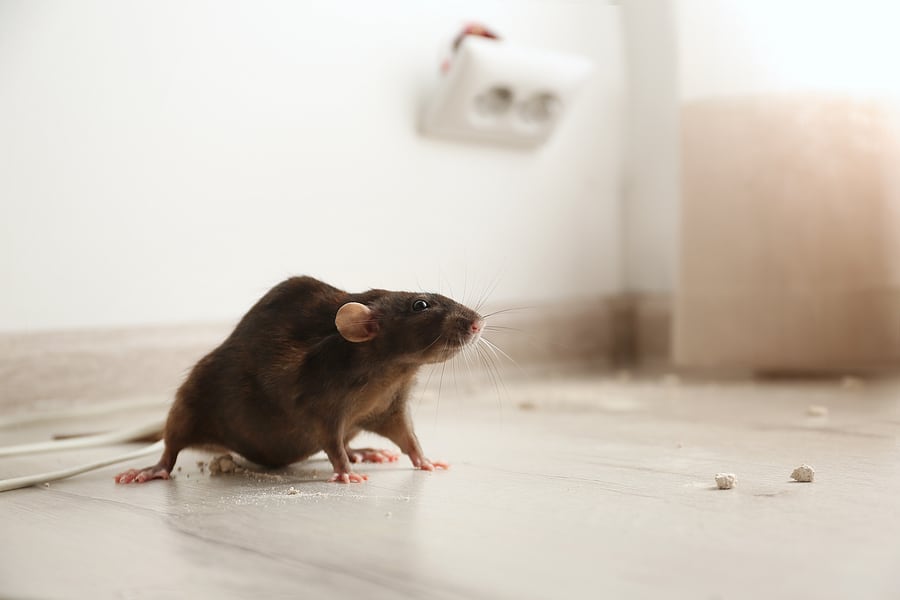With the increasing concern for health and hygiene, many people are exploring alternative methods for controlling pests in their homes. One such method that has gained popularity is the use of electronic pest repellers. But what is the electronic pest repellers effectiveness? Do they really work, or are they just a gimmick?
Understanding the electronic pest repellers effectiveness is crucial for anyone considering purchasing these devices. In this article, we will delve into the technology behind electronic pest repellers, evaluate their effectiveness, and explore alternatives for effective pest control.

What Are Electronic Pest Repellers?
Electronic pest repellers are devices designed to deter pests such as rodents, insects, and other unwanted guests from your home. They typically work by emitting ultrasonic or electromagnetic waves that are said to disrupt the nervous systems of pests, causing them to flee the area. These devices are marketed as a humane and environmentally friendly way to manage pest problems without the use of chemicals.
Types of Electronic Pest Repellers
There are primarily two types of electronic pest repellers: ultrasonic and electromagnetic. Ultrasonic pest repellers emit high-frequency sound waves that are inaudible to humans but are believed to be irritating to pests. Electromagnetic pest repellers, on the other hand, use the electrical wiring in your home to create an electromagnetic field that is said to repel pests.
Evaluating the Effectiveness of Electronic Pest Repellers
The question of electronic pest repellers effectiveness is a contentious one. While some users swear by these devices' ability to keep their homes pest-free, others report little to no success. Let's explore some factors that can influence the effectiveness of electronic pest repellers.
Scientific Studies and Consumer Reviews
Several scientific studies have been conducted to evaluate the effectiveness of electronic pest repellers. The results have been mixed, with some studies indicating limited success and others showing no significant impact on pest populations. Consumer reviews also vary widely, with some users experiencing a noticeable reduction in pests and others seeing no change.
It's important to consider that the effectiveness of electronic pest repellers may depend on several factors, including the type of pest, the severity of the infestation, and the specific device being used. For more information on pest control strategies, check out this article on integrated pest management.
Factors Influencing the Effectiveness of Electronic Pest Repellers
Several factors can influence the effectiveness of electronic pest repellers. Understanding these factors can help you make an informed decision about whether these devices are right for you.
Type of Pest
Electronic pest repellers may be more effective against certain types of pests than others. For example, ultrasonic devices are often marketed for use against rodents and insects, but their effectiveness against these pests can vary. It's important to identify the specific type of pest you're dealing with and research whether electronic pest repellers are known to be effective against them.
Severity of Infestation
The severity of the infestation can also impact the effectiveness of electronic pest repellers. In cases of mild infestations, these devices may be more effective in deterring pests. However, in cases of severe infestations, additional pest control measures may be necessary. For tips on handling rodent infestations, consider reading this guide on rodent droppings in rental properties.
Device Quality and Placement
The quality of the electronic pest repeller and its placement can also affect its effectiveness. High-quality devices with proven track records are more likely to produce positive results. Additionally, proper placement is crucial for maximizing the device's reach and effectiveness. Be sure to follow the manufacturer's instructions for optimal placement in your home.
Alternatives to Electronic Pest Repellers
While electronic pest repellers can be an option for some, they may not be suitable for everyone. Fortunately, there are several alternatives for effective pest control:
Natural Repellents
Natural repellents, such as peppermint oil or cinnamon, can be effective against certain pests. For information on creating a natural rodent repellent, check out this DIY cinnamon rodent repellent.
Professional Pest Control Services
For severe infestations, professional pest control services may be necessary. These experts have the knowledge and tools to effectively manage and eliminate pest problems in your home. You can explore the top pest control companies by visiting this guide on pest control companies.
Preventive Measures
Implementing preventive measures can help reduce the likelihood of pest infestations. This includes sealing entry points, keeping your home clean and clutter-free, and maintaining proper food storage. For additional tips on preventing pests in rental properties, consider reading this article on preventing pests in your Airbnb.
Conclusion
In conclusion, the electronic pest repellers effectiveness is a topic of debate. While some users may experience success with these devices, others may find them less effective. Understanding the factors that influence their effectiveness and exploring alternative pest control methods can help you make an informed decision about whether electronic pest repellers are right for you.

FAQ
1. Are electronic pest repellers safe for pets?
Most electronic pest repellers are designed to be safe for pets, as the ultrasonic frequencies are typically inaudible to animals. However, it's always a good idea to check the manufacturer's guidelines and consult with a veterinarian if you have concerns about your pets' safety.
2. How long do electronic pest repellers take to work?
The time it takes for electronic pest repellers to work can vary depending on the type of pest and the severity of the infestation. Some users report seeing results within a few days, while others may take longer. Consistent use and proper placement are key factors in achieving optimal results.
3. Can electronic pest repellers be used outdoors?
Some electronic pest repellers are designed for outdoor use, while others are intended for indoor use only. If you plan to use a repeller outdoors, be sure to choose a device specifically designed for outdoor conditions and follow the manufacturer's instructions for safe and effective use.
